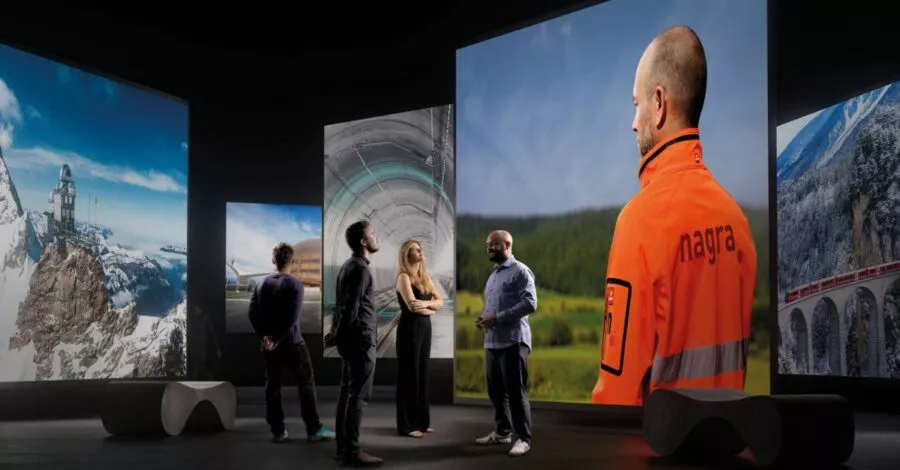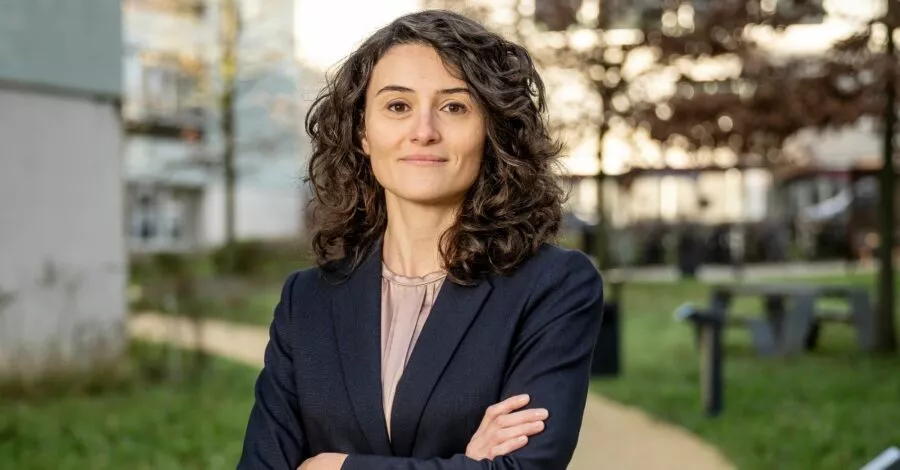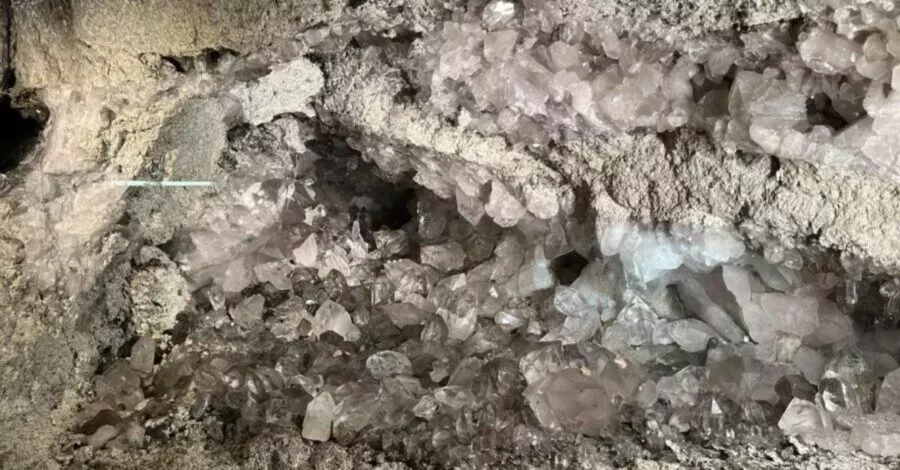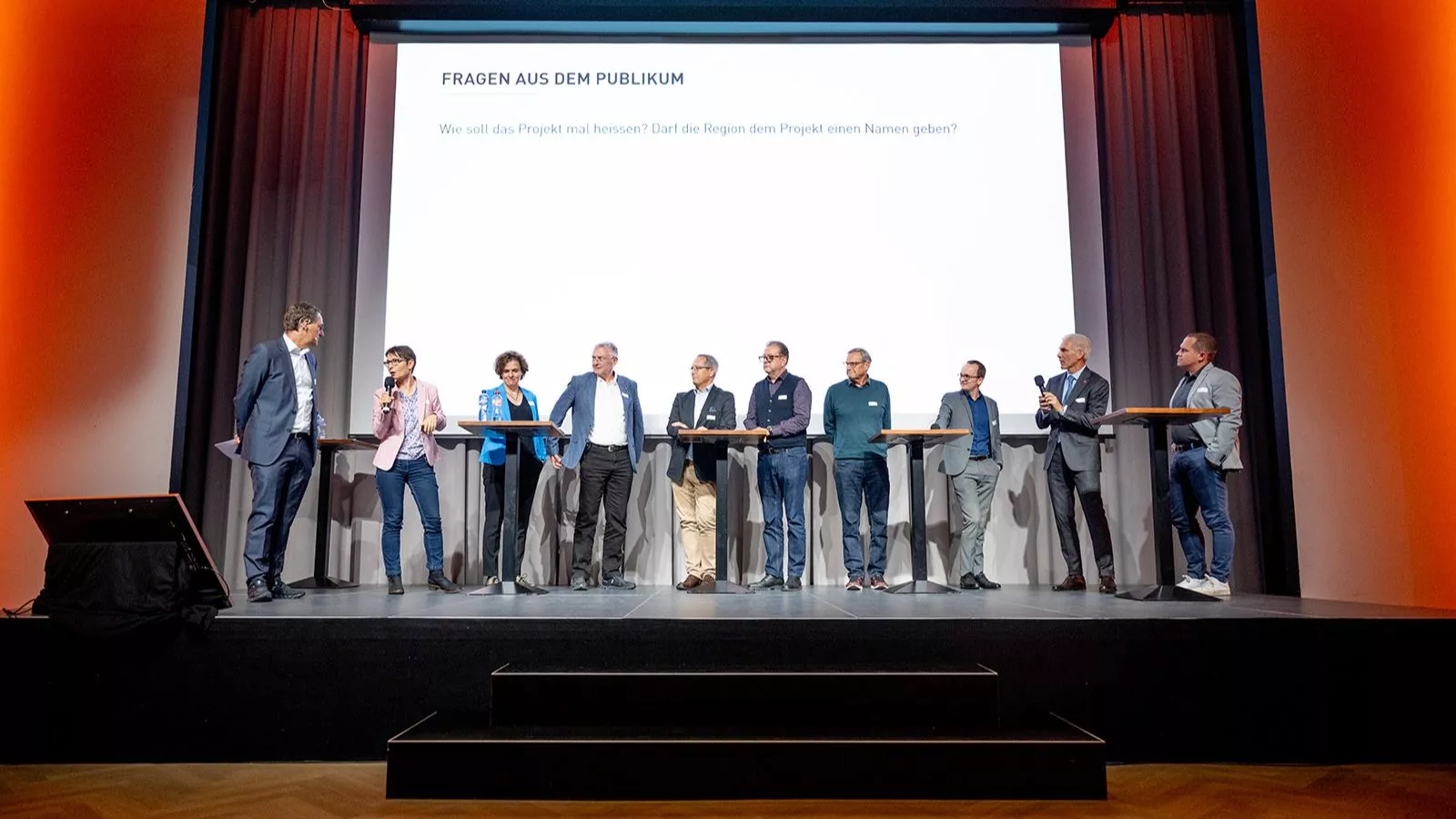
Dealing with conflicting goals and getting young people involved
Collaboration improves the project of the century of deep geological disposal – the attendees at the “Dialogue on the Deep Geological Repository” event all agreed on this. But where are the pitfalls, what problems could arise? Over 120 people discussed this at the Ebianum event site in Fisibach, Switzerland.
“We must and are willing to talk to the residents of the Nördlich Lägern siting region, indeed with all the stakeholders involved,” Nagra President Lino Guzzella said in his opening statement. Listening to each other is crucial. As is unearthing the real sources of apprehension. “We must talk about how everyone involved can work together to improve the project, and we must learn from each other,” Guzzella continued.
The first short lecture focused on learning from other major projects. Martin Haller, a member of the Board of Directors of Gateway Basel Nord AG, discussed the target objectives of “his” project of the century. Gateaway Basel Nord aims to improve the shipping of goods by waterway, rail and road with the overall objective of shifting more freight to rail. This project makes perfect sense from an environmental point of view – and yet there are conflicts of interest, for example with nature conservation: the flora and fauna growing on the abandoned marshalling yard earmarked for this project have developed into a nature reserve of national importance in recent decades. Haller described this dilemma and the search for a solution. The project faces further conflicts, such as legal disputes with other logistics companies. Today, this project is lingering in the courts. Against the background of this experience, Haller gave two tips for moving ahead with the deep geological repository: “When dealing with major projects, it is important to start dialogue as early as possible. It is then crucial to do whatever it takes to maintain this dialogue, especially with critical voices.”
Roland Schmidiger, Head of Axpo’s Nuclear Energy Division, explained how the “waste producers”, i.e. those responsible for radioactive waste, envisage the negotiations on settlements. The dialogue phase is scheduled to begin as early as December 2023. The objective of this phase is to clarify positions and determine both the topics and rhythm of the negotiations as well as the delegations. In a second phase, negotiations will then begin within a defined framework. “We are entering these negotiations with an open mind,” said Schmidiger. He expressed his respect for the work of the community representatives: “You took action, gathered information and organised information events yourselves. Keep it up and keep asking questions.”
The subsequent statements from representatives of the communities, authorities and associations highlighted one problem in particular: young people barely concern themselves with the deep geological repository. How can the young generation be brought closer to this topic? This question not only occupies the mayor of Stadel, Dieter Schaltegger, but also Werner Kramer from the STADELaktiv group, Christoph Müller, the co-president of the Nördlich Lägern regional conference, and Jürgen Wiener, the mayor of the German town of Hohentengen. Monika Stauffer, Head of the Radioactive Waste Management Section at the Swiss Federal Office of Energy, pointed out that it is not only the topic of deep geological repositories that young people and women in particular fail to be interested in. Wilma Willi, a cantonal councillor from the Green Party and resident of Windlach, argued that it was not enough to simply want more representatives of the younger generation to help shape the project: “We need concepts and we need measures. Once we have those, I am convinced that young people will become more involved in this issue.”
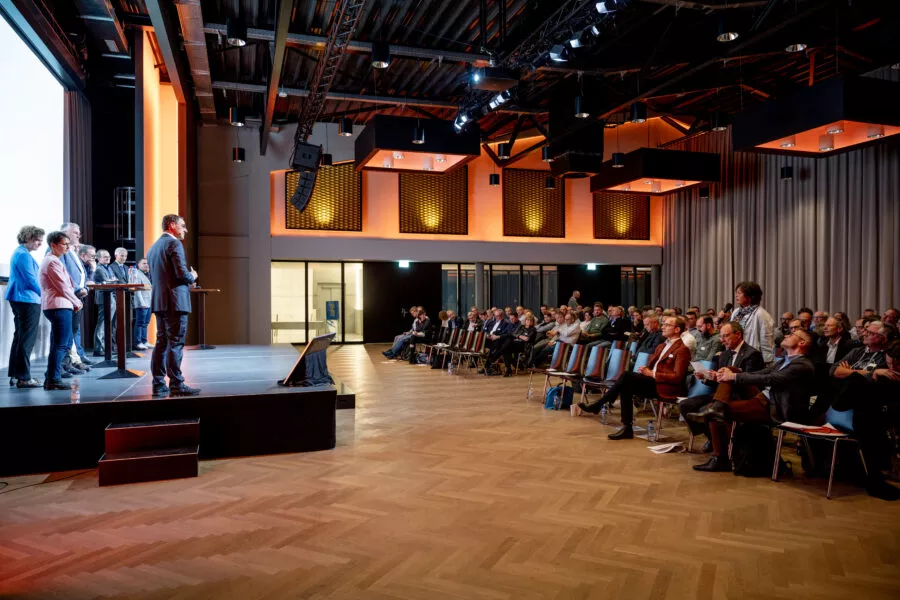
The event attendees agreed that greater involvement of the younger generation is one of the most important issues for the future. Concrete solutions have yet to be found – but the problem has been recognised as such, which is an important first step.
It was also agreed that dialogue and collaboration must continue, and that both will only gain in importance as the project nears the implementation stage. Martin Neukomm, government councillor of Canton Zurich, promised to support the communities if necessary. Nagra CEO Matthias Braun announced that Nagra would be opening an information office in Stadel at the beginning of 2024, and Ann-Kathrin Leutz from the Swiss Federal Nuclear Safety Inspectorate (ENSI) emphasised that ENSI’s doors were always open and that exchange was also very important to them.
“We can feel grateful and also a little proud for being able to discuss problems and solutions so constructively with each other in Switzerland,” Lino Guzzella concluded at the official end of the event. Informal discussions over drinks continued well into the evening.
Similar articles
What does Switzerland think about the deep geological repository?
Switzerland is confident that it can realise the project of the century of deep geological disposal. A recent, representative survey shows that acceptance is high across the whole of Switzerland and in the affected region.
